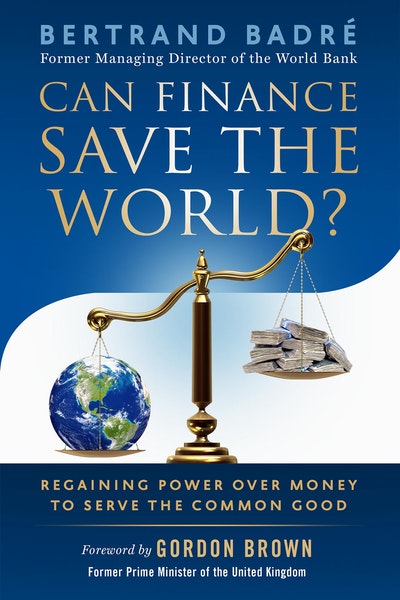- Published: 15 February 2018
- ISBN: 9781523094219
- Imprint: Berrett-Koehler
- Format: Paperback
- Pages: 288
- RRP: $49.99
Can Finance Save the World?
Regaining Power over Money to Serve the Common Good
- Published: 15 February 2018
- ISBN: 9781523094219
- Imprint: Berrett-Koehler
- Format: Paperback
- Pages: 288
- RRP: $49.99
"Bertrand Badré is a practical visionary. He fully recognizes the power of the backlash against financial globalization. But finance is an essential tool. As he argues in this heartwarming book, innovative partnerships between the public and the private sectors remain essential if we are to enjoy a cooperative world and a better future."
--Martin Wolf, Chief Economics Commentator, Financial Times
"Finance can do a lot of bad. But it can also do a lot of good. Bertrand Badré's book shows concretely how, with a focus on public-private partnerships, and the specific role of multinational development banks. This is important, practical work."
--Olivier Blanchard, Fred Bergsten Senior Fellow, Peterson Institute for International Economics, and Robert Solow Professor Emeritus, Massachusetts Institute of Technology
"Creating a world where no one is left behind requires a clear road map. We have the sustainable development goals, and Bertrand explains how the financial system can play a more effective role to help them come alive."
--Paul Polman, CEO, Unilever
"Can finance be a force for good? When a PPP (a person with in-depth private practice and a profound public commitment) proposes that PPP (private-public partnership) improves people's lives and future, then it can prove transformational for the role and purpose of finance and help make progress on the road to the sustainable development goals."
--Christine Lagarde, Managing Director, International Monetary Fund
